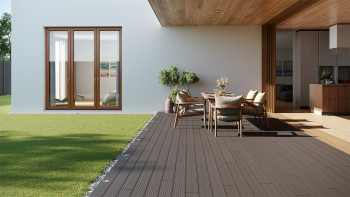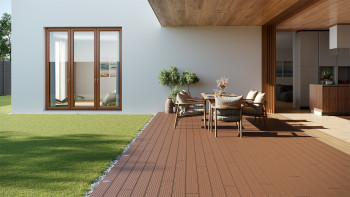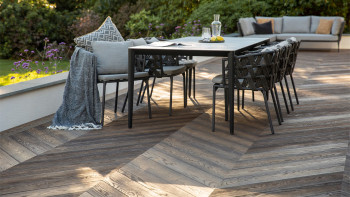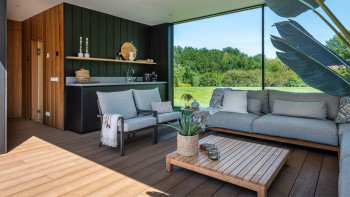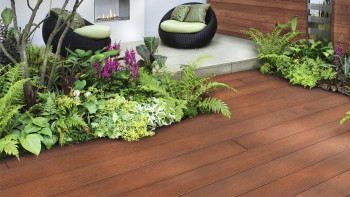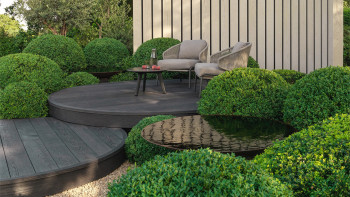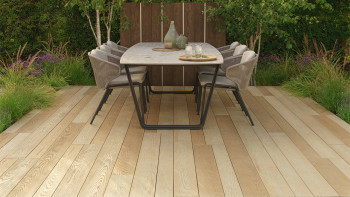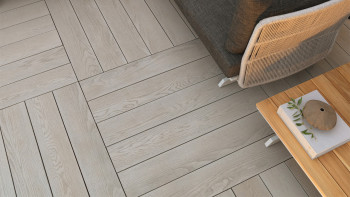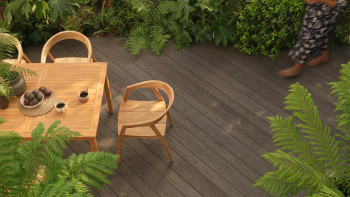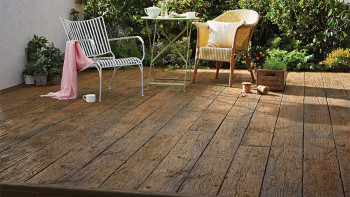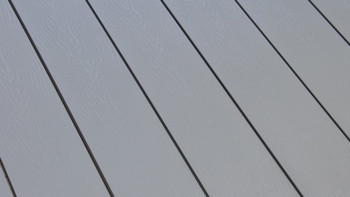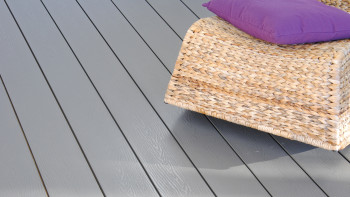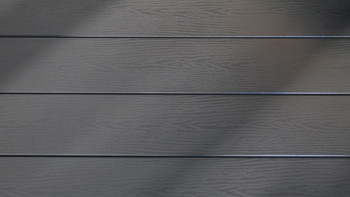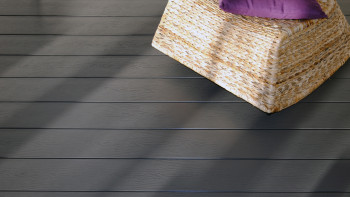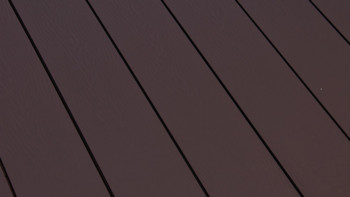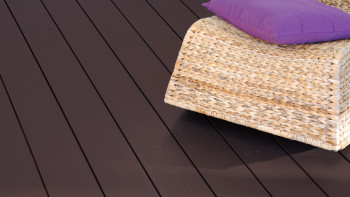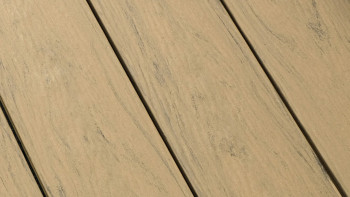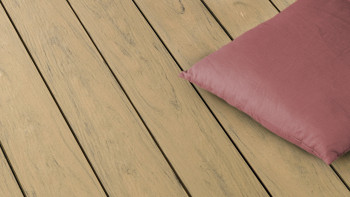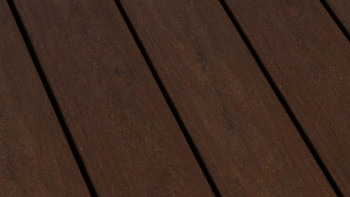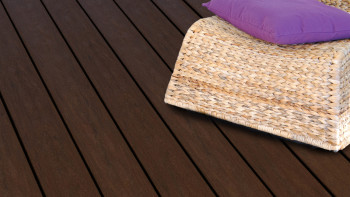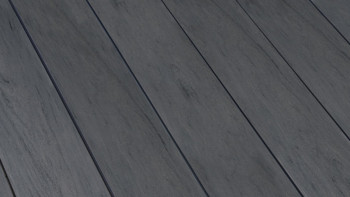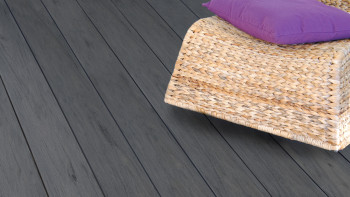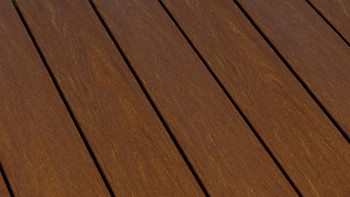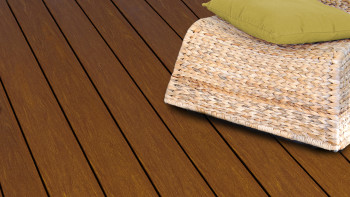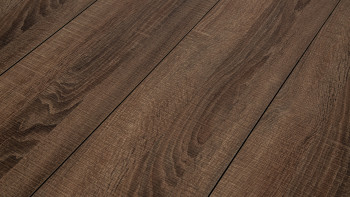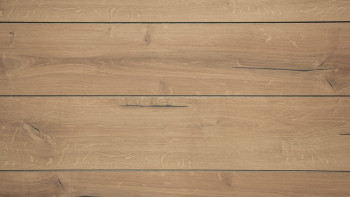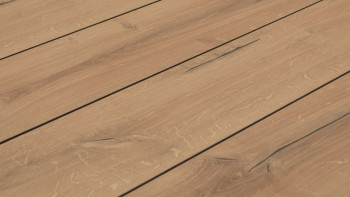Build your bespoke dream terrace with high-quality decking boards
With first-class decking from the planeo range, you lay the foundation for a new level of outdoor comfort. A stylish terrace enhances the entire outdoor area. Transform your garden into a feel-good oasis with wooden terrace boards or go for the easy-care terrace panels made of WPC.
Wooden decking boards – it doesn't get more natural than this
Wooden flooring outside is reassuringly classic. The planeo online shop boasts a wind range of wooden decking styles. Domestic wood species such as Douglas fir or larch are just as much a part of the range as the tropical woods Garapa, Cumaru or Ipé. Choose the variety that has the right properties for your site.
Our indigenous Douglas fir and larch products are inexpensive and FSC-certified. Their weather resistance, stability and balanced price-performance ratio make them a popular choice for patio construction. These native softwoods also score points in terms of appearance. They impress with their knotty wood structure and warm colouring.
Tropical woods are something special. Our FSC-certified hardwoods from South America – Ipé, Cumaru and Garapa are durable, highly resistant to pests and require minimal maintenance. They are sourced from sustainable forests and are particularly robust, with up to 25 years’ durability.
What all wooden decking boards have in common is the need for a substructure when laying, which should be made of the same type of wood as the boards.
WPC decking boards - the modern alternative
WPC decking is a great substitute for wooden boards. The detailed grain pattern means they offer something very close to natural wood. Wood plastic composite is an innovative mixture that combines all the advantages of wood and plastic. WPC planks are durable, robust and are naturally highly resistant to moisture. A WPC terrace is crack-free and splinter-free and therefore very barefoot-friendly. The practical WPC decking boards are weatherproof and highly resistant to insects, fungi and moss. In addition, WPC decking boards are very easy to care for – water and a soft brush are usually enough for cleaning.
WPC planks are also visually impressive with their high colour stability. They experience very little fading from UV radiation or washing-out. Quick and easy installation, thanks to the sophisticated clip system, is also another plus with WPC decking. The high-quality wood-plastic composite material can be processed quickly and easily. WPC decking boards can be sawn, milled and drilled with standard woodworking tools.
Buy decking boards online at planeo
With terrace boards from planeo you can redesign your garden, terrace or balcony into an elegant new space, with minimal fuss and at the best prices. Choose decking boards online and have samples sent to your home free of charge. Functional patio accessories, complete patio sets, as well as high-quality garden lighting and modern garden fences are also part of our extensive range. We’re here to give you any advice you may need!
Our services
At planeo you will receive comprehensive advice and support. Take advantage of our extensive services:
- FREE order of up to 7 samples
- FREE storage for up to 3 months
- Professional expert advice until 10pm
We love to advise you on your projects!
























